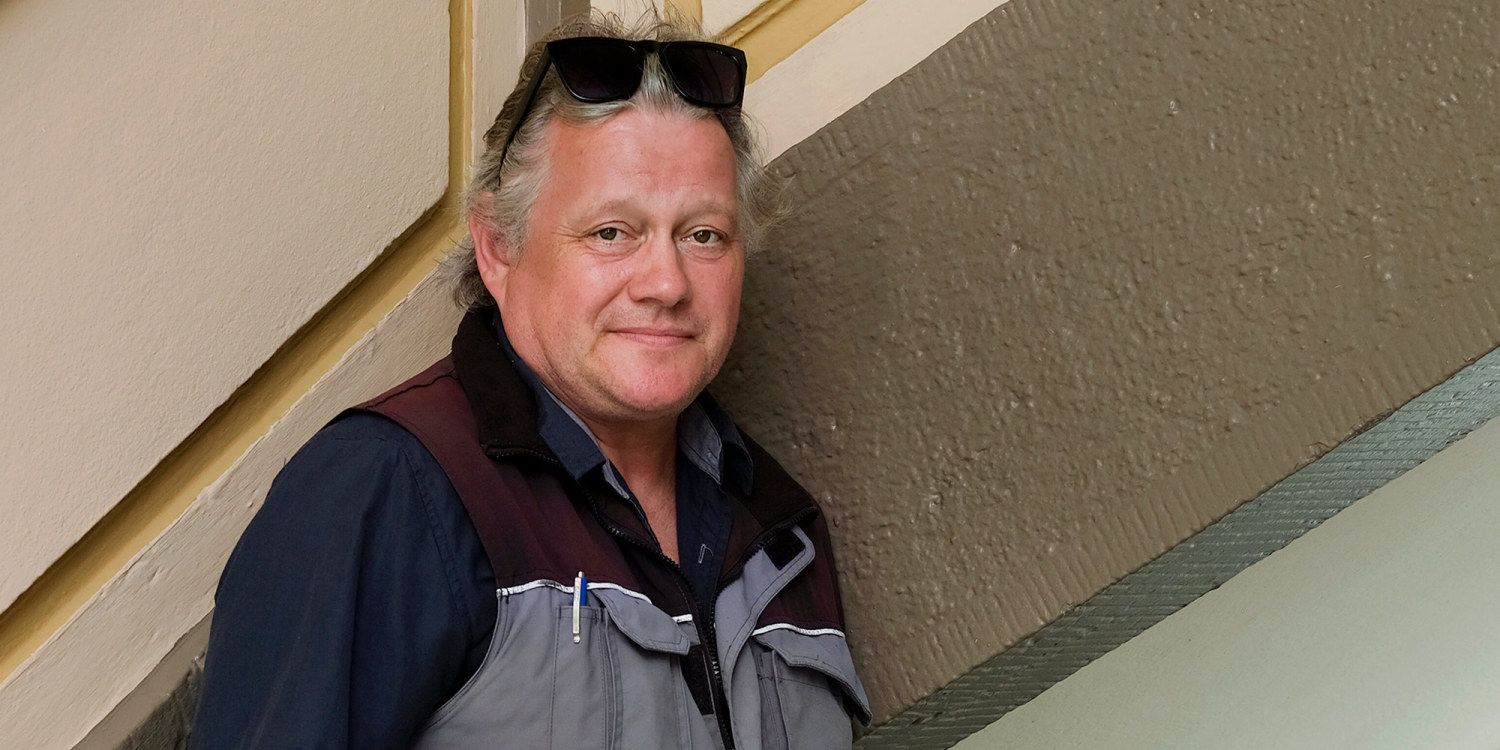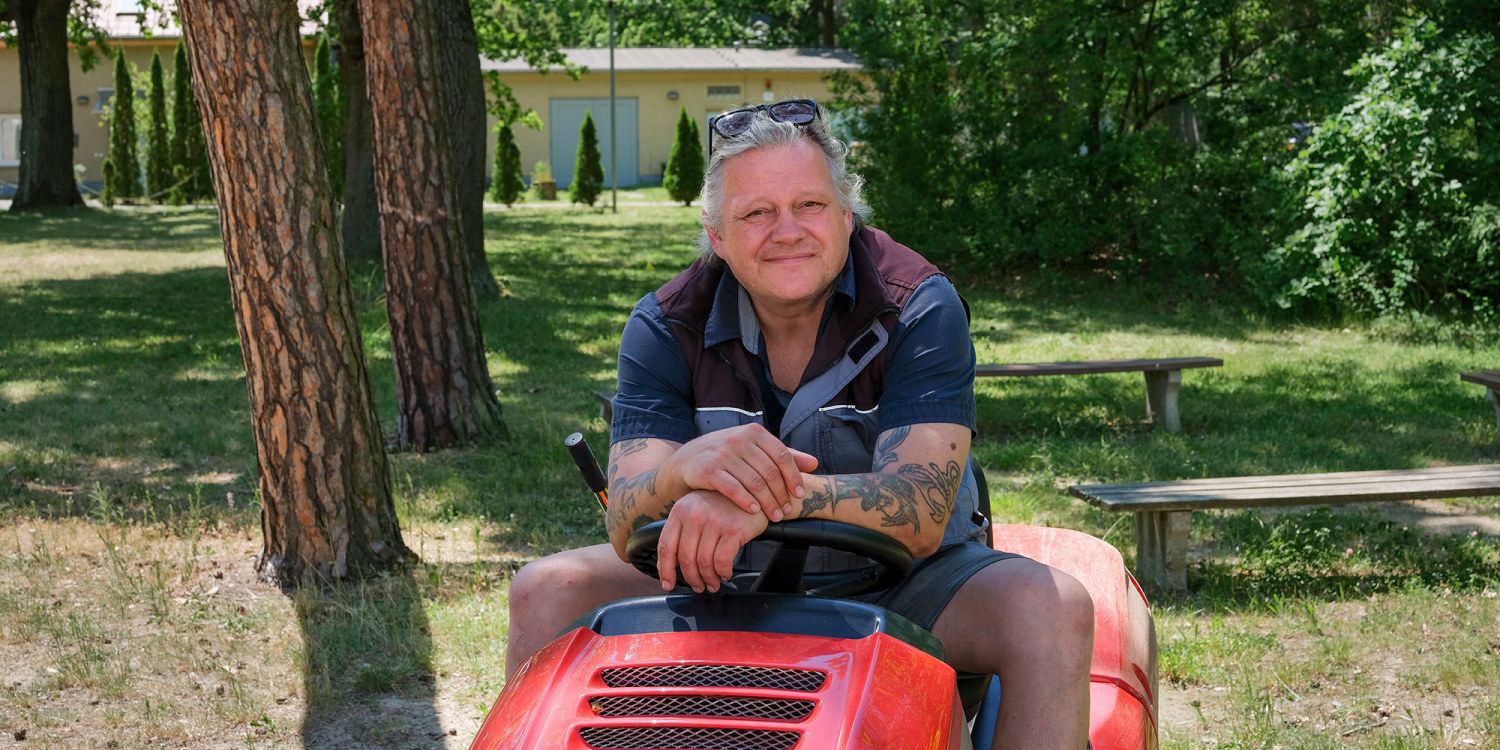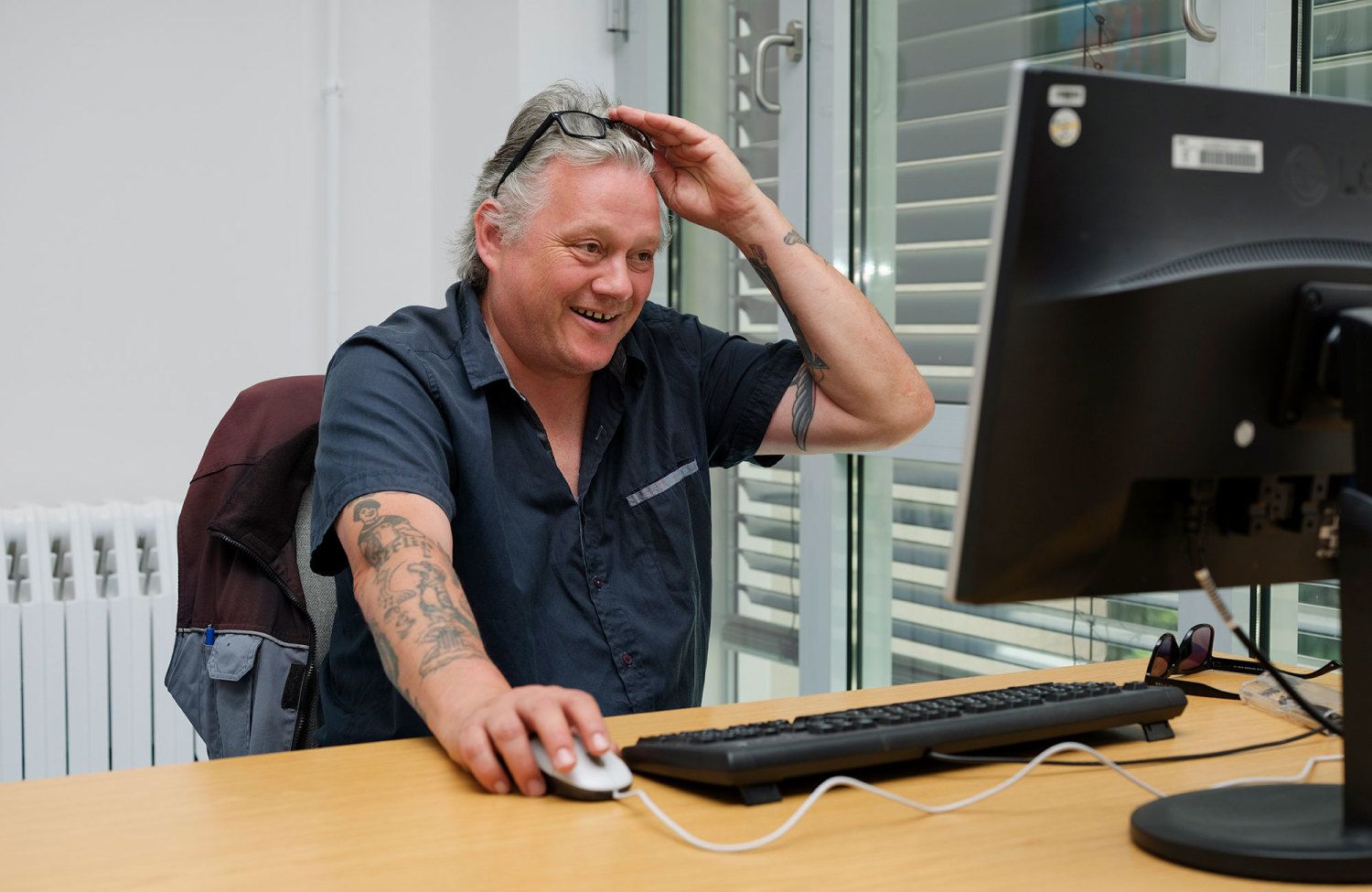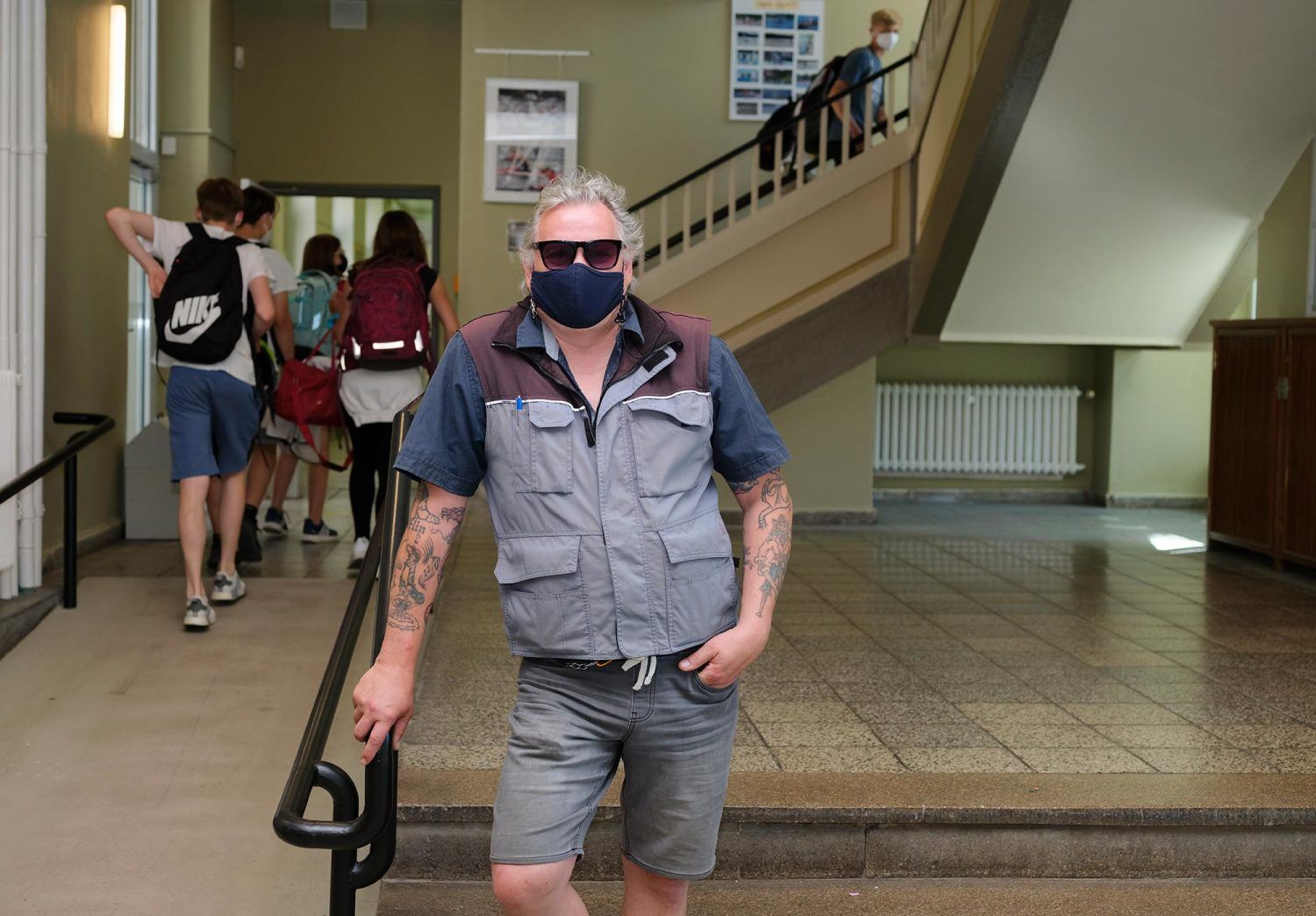Peter Eisermann, born in 1966, is a little tired of starting over. He has done a lot of things in his life, but nothing lasted. Something that may now change, thanks to a Solidary Basic Income position at an elite school of sports in Köpenick.
Berlin has changed a lot over the years, as Peter Eisermann (name has been changed) knows all too well. A native of West Berlin, he grew up on Zillestrasse in Charlottenburg. As a young man, he watched the Berlin Wall come down and the historic upheavals as the German Democratic Republic collapsed. And in the years that followed, he got to experience first-hand what this meant for the city’s labor market – in good times and bad.
Outlining Eisermann’s professional biography is no easy feat. Over the course of his life, he has not only held a number of jobs but has also worked in a range of different fields; former employers include an event organizer, an operator of photovoltaic plants, and a youth club. Anything as long as he enjoyed his work. “I wouldn’t have taken a job otherwise,” he says. “It makes no sense to do a job that isn’t fun and that you don’t enjoy. It’s not productive, and I don’t take jobs like that in the first place.”
As a child, Eisermann spent a lot of time on the Havel with his parents, at a campsite near the water. Today, he still regularly spends time on the banks of the Havel in Köpenick, where he lives, and is a loyal member of the local fishing club. In Charlottenburg, he attended Johann Peter Hebel Elementary School (“Johann-Peter-Hebel-Grundschule”) and then moved on to Friedrich Ebert High School (“Friedrich-Ebert-Gymnasium”), where he intended to take the Abitur school-leaving exam. The adolescent disliked a lot of things about high school, the “slavish obedience,” the authoritarian attitude of the teaching staff, some of whom expected students to carry their bags. Eisermann wouldn’t play along, rubbed people the wrong way, didn’t want to be the scapegoat, and dropped out of school – without a diploma. “None of it was a good fit,” he says, as someone who today works at a school himself and has observed very different conditions. “It’s beyond comparison,
students and teachers today treat each other almost as equals.”




